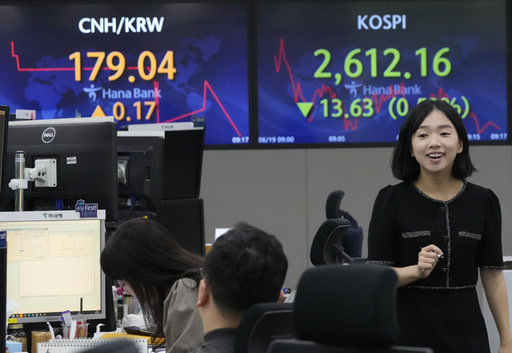Gundlach Predicts: A Cautious Outlook on US Interest Rates and Inflation (SEO meta description: Gundlach, interest rates, inflation, Fed, 2025 prediction, economic outlook, bond market, new debt king)
Dive into the crystal ball with us as we dissect the esteemed Gundlach's latest pronouncements on the US economy. Forget the hype, the sensationalism, the clickbait – we're going deep. Prepare for a no-nonsense analysis, backed by economic theory, real-world data, and a dash of seasoned perspective. We’re not just reporting; we’re unraveling the intricate tapestry of economic forecasting, exploring the implications of Gundlach's predictions for investors, businesses, and you. This isn’t your typical market recap; it’s a strategic deep dive designed to empower you with actionable insights, helping you navigate the complexities of the financial landscape. We'll explore what makes Gundlach's views so influential, examine the underlying economic forces at play, and, most importantly, help you understand how this impacts your financial future. So, buckle up – it's time to navigate the turbulent waters of economic forecasting with expertise and clarity.
Gundlach's 2025 Prediction: A Measured Descent?
Following the recent comments from Jeffrey Gundlach, widely known as the “New Bond King,” regarding the Federal Reserve's (Fed) interest rate trajectory and inflation projections for 2025, it's crucial to analyze his assertions with a critical yet informed eye. Gundlach's prediction, essentially, paints a picture of a more gradual and less dramatic reduction in interest rates than many market participants anticipate. He foresees at most two interest rate cuts by the Fed in 2025, significantly diverging from the more optimistic scenarios floating around Wall Street. This isn't just a prediction; it's a challenge to the prevailing narrative, a call for a more cautious approach to investment strategies. His statement directly clashes with the hopes of many who anticipate a more aggressive easing cycle by the central bank. But what are the underlying reasons for this divergence of opinion? Let's delve deeper.
Inflation: The Stubborn Beast
Gundlach's skepticism isn't just plucked from thin air; it's rooted in his assessment of inflation. He believes that inflation won't magically dissipate to the Fed's target of 2% by 2025. This is a critical point, as the Fed's actions are largely dictated by its inflation targets. If inflation remains stubbornly elevated, the central bank is less likely to aggressively cut interest rates, fearing a resurgence of inflationary pressures. This isn't merely speculation; numerous indicators, from persistently high energy prices to ongoing supply chain disruptions, support Gundlach's concern.
This persistent inflation is a complex issue, interwoven with global supply chains, geopolitical instability, and consumer behavior. It’s not a simple equation; it’s a dynamic system reacting to countless variables. Understanding this complexity is vital to grasping Gundlach’s perspective.
The Fed's Tightrope Walk
The Fed's predicament is akin to walking a tightrope: it needs to combat inflation without triggering a recession. Aggressive interest rate cuts risk reigniting inflation, while too slow a response could prolong economic stagnation. Gundlach's prediction suggests a recognition of this delicate balancing act, implying a more measured approach to monetary policy than some exuberant market participants anticipate. This measured approach is a testament to the Fed's awareness of the potential risks involved in aggressive policy changes.
The historical context is also crucial. Examining previous periods of high inflation and the Fed's responses provides valuable insight into the current situation. Looking back at the 1970s and 1980s reveals the long-term consequences of failing to address inflation decisively, reinforcing the need for a cautious approach today.
Implications for Investors
Gundlach's prediction carries significant implications for investors. If his assessment proves correct, it could mean lower-than-expected returns for certain asset classes. For example, investors expecting aggressive rate cuts might be disappointed, potentially leading to a reassessment of their portfolios. This underscores the importance of diversification and a robust investment strategy that can adapt to changing economic conditions.
This requires a deeper understanding of various asset classes, their sensitivities to interest rate changes, and their potential to provide returns in different economic environments. This is where professional financial advice becomes invaluable, particularly in such uncertain times.
Beyond the Numbers: The Human Element
While economic models and data provide a framework for analysis, it's crucial to remember the human element. Consumer confidence, business investment decisions, and geopolitical events can all significantly impact the economic landscape. Gundlach's forecast incorporates these factors, reflecting a nuanced understanding of the interplay between economic indicators and human behavior.
This holistic approach showcases the expertise Gundlach brings to the table, emphasizing that economic forecasting isn't purely about algorithms and data; it's about understanding the human dimension within the economic system.
Analyzing the Market: A Deeper Dive
The bond market, Gundlach's area of expertise, often serves as a leading indicator of economic trends. His predictions are often closely watched by investors, reflecting the significance of the bond market in gauging future economic activity. Analyzing the current bond market yields and their relationship to Gundlach's predictions can offer further insights into the validity of his assessment.
Understanding the intricacies of the bond market is crucial for investors who want to accurately interpret economic signals and make informed decisions. It requires knowledge of bond yields, maturities, and the relationship between bond prices and interest rates.
What Does This Mean For You?
Gundlach's outlook underscores the importance of a long-term investment strategy. Rather than chasing short-term gains based on speculative market trends, investors should focus on building a diversified portfolio that can withstand economic volatility. This includes actively monitoring the economic landscape and adjusting investment strategies accordingly. Financial literacy is paramount; understanding basic economic concepts and market dynamics empowers individuals to make informed financial decisions.
It also highlights the need for professional financial advice. A financial advisor can help individuals develop a personalized investment strategy that aligns with their financial goals and risk tolerance, providing guidance through periods of economic uncertainty.
Frequently Asked Questions (FAQs)
Q1: Who is Jeffrey Gundlach?
A1: Jeffrey Gundlach is a highly respected and influential fixed-income investor, often referred to as the "New Bond King," known for his accurate market predictions and successful investment strategy. His opinions carry significant weight in the financial world.
Q2: What is the significance of Gundlach's prediction?
A2: Gundlach's prediction challenges the prevailing market sentiment regarding the Fed's future actions and inflation trajectory. His more cautious outlook urges investors to reassess their strategies and consider the potential for less aggressive rate cuts than anticipated.
Q3: How reliable are Gundlach's predictions?
A3: While no prediction is guaranteed, Gundlach has a proven track record of successful calls, making his opinions noteworthy and deserving of careful consideration. However, his predictions should not be taken as definitive statements but rather as valuable insights to incorporate into your overall assessment.
Q4: What should investors do in light of Gundlach's prediction?
A4: Investors should approach this prediction with a balanced perspective. Diversification, long-term investment strategies, and professional financial advice are crucial for navigating such uncertainty. Avoid making rash investment decisions solely based on this single prediction.
Q5: What are the potential risks of ignoring Gundlach's prediction?
A5: Ignoring his cautious outlook could lead to overexposure to assets that are highly sensitive to interest rate changes. This could result in significant portfolio losses should inflation remain persistent and rate cuts be less aggressive than anticipated.
Q6: Where can I find more information on Gundlach's views?
A6: You can access Gundlach's insights through various financial news outlets, investment research firms, and his own firm's publications. However, always critically evaluate information from multiple sources to form a well-rounded perspective.
Conclusion: Navigating the Uncertainties
Gundlach's prediction serves as a timely reminder that economic forecasting involves inherent uncertainty. While his insights provide valuable perspective, they shouldn't be interpreted as definitive pronouncements. Instead, they should be considered as part of a larger analysis that includes various economic indicators and market trends. The current economic climate requires investors to remain vigilant, adapt their strategies, and prioritize long-term financial planning. By understanding the nuanced predictions of market experts like Gundlach and combining that with robust financial literacy, investors can navigate the uncertainties of the financial markets with greater confidence and achieve their long-term financial goals. Remember to seek professional advice; a financial advisor can help chart a course tailored to your individual needs.



